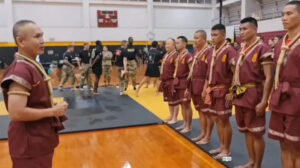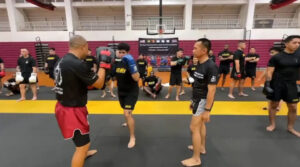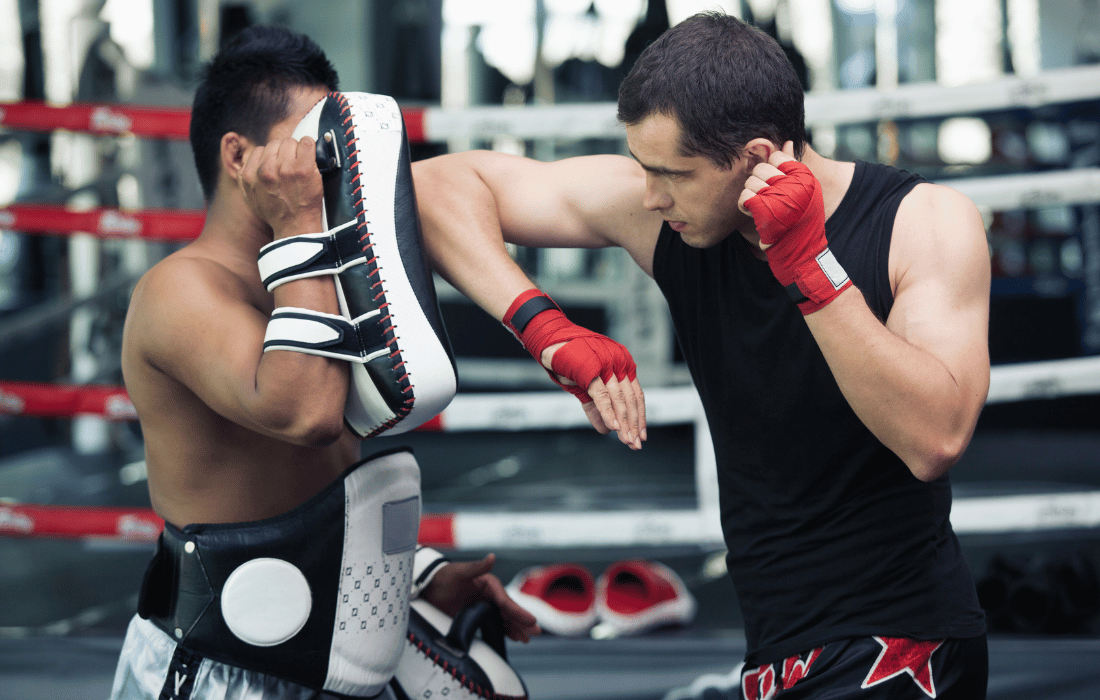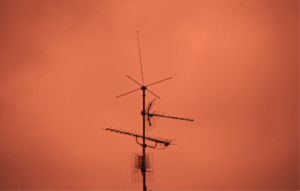In a world where military prowess and defense strategies often dominate headlines, there is a quieter but equally powerful force at play—soft power. Cultural exchange programs, especially those that highlight national sports and traditions, can strengthen alliances in ways that go beyond the battlefield. One recent example is the decision by Thailand to send Muay Thai experts to train U.S. military personnel at Schofield Barracks in Hawaii from October 20 to November 2, 2024. This program, organized as part of Thailand’s military soft power initiative, represents more than just a cross-training exercise. It embodies the cultural and diplomatic bond between the two nations.
However, beyond its military applications, this exchange also highlights the profound impact martial arts like Muay Thai can have on one’s quality of life. While combat effectiveness is often the focus in military training, the benefits of practicing martial arts extend far beyond fighting. In fact, incorporating martial arts into daily life promotes mental clarity, physical health, discipline, and resilience, all of which are critical to achieving personal and professional excellence.
The Intersection of Culture, Combat, and Diplomacy
Muay Thai, a traditional martial art that originated in Thailand, is known as “the art of eight limbs” due to its utilization of fists, elbows, knees, and shins in combat. Over the years, Muay Thai has evolved from a battlefield skill used by soldiers to defend the kingdom into a globally recognized sport and self-defense discipline. Today, Muay Thai is an integral part of Thai culture and identity, and by bringing this martial art to U.S. military personnel, Thailand is showcasing one of its most valuable cultural exports.

The program is led by Lt. Gen. Surin Preeyanuphap from the Army Sports Development Center and is supported by Pimol Srivikorn, chairman of the Soft Power Muaythai subcommittee. This initiative aligns with Thailand’s broader strategy to use sports as a diplomatic tool to promote cultural understanding and strengthen military alliances. The two-week training will cover the basics of Muay Thai, starting with fundamental stances and movements and progressing to more advanced techniques, such as elbow strikes. U.S. military personnel will also engage in cross-training that incorporates grappling techniques—an area in which the U.S. military has extensive experience.

For the U.S. troops, this is an opportunity not only to learn new combat skills but also to experience the rich culture behind Muay Thai. Every aspect of this martial art reflects the Thai way of life, from its spiritual origins to its emphasis on discipline and respect. By engaging in this cultural exchange, both nations strengthen their military ties while also gaining a deeper understanding of each other’s traditions and values.
Martial Arts and Mental Health: Beyond Combat
While the military’s interest in Muay Thai primarily lies in its combat effectiveness, the benefits of practicing martial arts extend far beyond the battlefield. Muay Thai, like many other martial arts, is not just a physical activity—it is a way of life. Practitioners develop mental fortitude, emotional resilience, and a heightened sense of self-awareness, all of which are essential for maintaining balance and well-being in the fast-paced, high-stress environments that military personnel often face.
1. Mental Discipline and Focus: One of the key elements of martial arts training is the cultivation of mental discipline. Practicing Muay Thai requires a high level of focus and concentration, as each movement must be executed with precision. Over time, this focus helps practitioners develop mental clarity and the ability to remain calm under pressure. For U.S. military personnel, who often find themselves in stressful situations, the mental benefits of Muay Thai can be just as valuable as the physical ones. Learning to stay calm and focused in the heat of battle is critical, but these skills are also transferable to daily life.
2. Stress Relief and Emotional Balance: Beyond its physical intensity, Muay Thai offers significant mental health benefits. Martial arts have been shown to reduce stress, anxiety, and depression by promoting mindfulness and physical exertion. For soldiers who may be dealing with the pressures of military life or the psychological toll of combat, engaging in regular martial arts training can be a therapeutic way to release pent-up tension and regain emotional balance. The meditative aspects of Muay Thai, which emphasize breath control and mental stillness, are especially helpful in this regard.
3. Personal Growth and Confidence: Learning and mastering a martial art instills a deep sense of accomplishment and self-confidence. Each level of progression, from basic movements to more advanced techniques, helps practitioners develop a stronger belief in their abilities. For military personnel, this confidence can translate to improved performance in the field. But the benefits are not limited to combat readiness; they extend into everyday life. The discipline and self-assurance gained through martial arts training can enhance decision-making, interpersonal relationships, and overall quality of life.
The Physical Benefits: Strength, Endurance, and Longevity
Martial arts like Muay Thai are full-body workouts that build strength, endurance, and cardiovascular health. For U.S. military personnel, whose physical fitness is paramount, the inclusion of martial arts training provides a comprehensive approach to physical conditioning. The physical benefits of Muay Thai are not limited to military personnel—they can be enjoyed by anyone who incorporates this martial art into their fitness routine.
1. Full-Body Conditioning: Muay Thai is a dynamic form of exercise that engages multiple muscle groups simultaneously. Each movement, whether it’s a punch, kick, or knee strike, requires the coordination of the entire body. This results in a full-body workout that improves strength, flexibility, and coordination. For U.S. military personnel, who need to maintain peak physical fitness, Muay Thai offers an effective way to build functional strength that is applicable both in combat and in everyday tasks.
2. Cardiovascular Health and Endurance: Muay Thai is also an intense cardiovascular workout that improves heart health and endurance. The high-intensity nature of the sport, with its rapid bursts of movement, makes it an excellent form of interval training. Practicing Muay Thai regularly can improve stamina and cardiovascular efficiency, both of which are critical for soldiers who must be prepared to perform under physically demanding conditions. Moreover, for civilians, engaging in such high-energy activities can lead to improved metabolic health and weight management.
3. Flexibility and Injury Prevention: One of the often-overlooked benefits of martial arts training is the improvement of flexibility and balance. Muay Thai requires practitioners to perform a wide range of motions, which increases flexibility and joint mobility. For military personnel, this flexibility can help prevent injuries, especially in high-stress or combat situations where the body is pushed to its limits. In civilian life, improved flexibility can enhance overall mobility and reduce the risk of injury from everyday activities.
Martial Arts for Longevity and Lifelong Wellness
Beyond the immediate physical and mental benefits, martial arts offer long-term advantages for health and wellness. Studies have shown that people who practice martial arts regularly tend to have better balance, stronger bones, and greater longevity compared to those who engage in more traditional forms of exercise. This is particularly relevant for military personnel who, after retiring from active duty, may seek ways to maintain their physical and mental health as they transition to civilian life.
1. Lifelong Learning and Mastery: One of the most rewarding aspects of martial arts is that it is a lifelong pursuit. Unlike many sports, which are often limited by age or physical condition, martial arts can be practiced well into old age. This makes it an ideal form of exercise for those seeking long-term physical and mental wellness. Muay Thai, with its emphasis on both physical fitness and mental discipline, provides practitioners with a sense of purpose and mastery that extends beyond the dojo or gym.
2. Community and Social Connection: Martial arts training often takes place in a communal setting, where practitioners form bonds with their instructors and peers. For U.S. military personnel, who are accustomed to working in teams, this sense of community can be particularly appealing. Training alongside others creates a sense of camaraderie and mutual support, which can help soldiers stay motivated and engaged. For civilians, joining a martial arts class can foster a similar sense of belonging and provide opportunities for social connection.
3. Holistic Approach to Health: Martial arts, particularly Muay Thai, emphasize a holistic approach to health that goes beyond physical conditioning. Many martial arts incorporate elements of meditation, mindfulness, and spiritual practice, which can promote overall well-being. This holistic approach to health is particularly important for military personnel, who are often exposed to high levels of physical and mental stress. By integrating mind, body, and spirit, martial arts offer a comprehensive way to achieve balance and longevity.
Martial Arts as a Soft Power Tool: Strengthening Diplomatic Relations
At the heart of Thailand’s decision to send Muay Thai experts to train U.S. troops lies a strategic use of soft power. In today’s geopolitical landscape, cultural diplomacy plays an increasingly important role in fostering strong alliances. While traditional military collaborations, such as joint exercises, remain important, the inclusion of cultural exchange programs like this one adds a new dimension to international relations.
For Thailand, this initiative not only strengthens its military alliance with the U.S. but also promotes Muay Thai as a global sport. By sharing its cultural heritage with the U.S. military, Thailand is positioning itself as a leader in martial arts training and expanding the global influence of Muay Thai.
For the U.S. military, this training program offers a valuable opportunity to learn a new combat discipline while also deepening its cultural understanding of a key ally. In an increasingly globalized world, cultural fluency is critical for military personnel, who may be deployed to diverse regions with varying customs and traditions.
Conclusion
The Muay Thai training program for U.S. military personnel represents more than just a combat exchange; it is a powerful example of cultural diplomacy in action. By integrating this traditional martial art into military training, Thailand is showcasing its cultural heritage while strengthening its strategic alliances with the United States. At the same time, U.S. troops are gaining more than just combat skills—they are experiencing the holistic benefits of martial arts, which enhance physical fitness, mental discipline, and overall quality of life.
As martial arts like Muay Thai continue to gain global recognition, their impact extends far beyond the confines of combat or sport. They offer a path to personal growth, wellness, and resilience—qualities that are valuable not only for soldiers in the field but for individuals striving to lead balanced, fulfilling lives. Whether on the battlefield or in daily life, the principles of martial arts help people build strength, adaptability, and inner peace.







